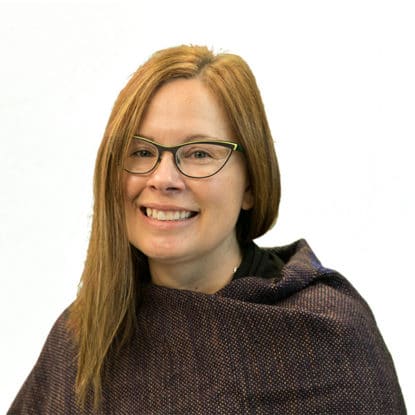Cynthia Zyzda, MFA
Professor of Visual Arts and HumanitiesAffiliated Faculty, Sustainability Studies
970-870-4432 | czyzda@coloradomtn.edu
Location: Steamboat Springs
Office: Academic Building 247
Education
- Master of Fine Art, Washington State University
- Bachelor of Fine Art, University of Iowa
- Undergraduate Foundation Year at Minneapolis College of Art & Design
- Currently enrolled in the Illustration Program at the Denver Botanic Gardens
Growing up in a rural environment in Northwest Iowa formed Cynthia's ambitions and personality. The setting made her completely aware of the natural environment around her. There were fifteen acres to roam, plus more uninhabited area adjacent to her family's land. It was home to deer, foxes, pheasants, raccoons, opossums, a myriad of birds and more. Most of her time growing up was spent outdoors in the garden and hills with her siblings, cousins and many pets. Cynthia used the hills for exploration and to make things. Mud, weeds, broken branches, wings from fallen butterflies — all these became part of something she made with her hands. It was no surprise that art and the environment became her emphasis. The Minneapolis College of Art and Design, the University of Iowa and Washington State University provided Cynthia with excellent fundamental skills, an unwavering work ethic, and the determination to continue a lifelong career in the arts.
Cynthia has more than one avenue of artistic work, but at the core of her work are the need, desire and curiosity of investigation. On one hand, much of her work has been influenced by research of the natural world through both traditional methods of study and through experiential approaches. Her attention has recently turned toward additional forms that hearken to the delicate ecological relationships that provide balance and diversity on our planet. While both volunteering at and working full time for the Montana Raptor Conservation Center, she experiences first-hand the effects of the human footprint on these magnificent indicator species. Now, she is compelled to make pieces that reflect that experience, especially as it relates to the ongoing issues of mercury and lead poisoning and the balance or imbalance between humans and other species.
Intuitive work is another means of investigation. Cynthia's work is a way of thinking that is both physical and mental. The action of working inspires thinking, and a reciprocal cycle ensues. The resultant forms are the artifacts of this associative process. Cynthia often experiments with nonverbal or abstract thoughts and combines these with environmental, social or cultural issues. Tastes, smells, sounds and sometimes colors translate into shapes or three-dimensional forms in her mind. She explores the visual components that make up those sometimes absurd and sometimes profound associations. But the answer is never as important to her as the many questions and meanings that can result. Her layering of social situations, tension, awkwardness and humor reflect the confusion of the time in which we live.
The next question, the next path, the next idea, the next change, is born from investigation. Cynthia’s life, teaching and work are about making reflections on this process to induce dialogue and thought…to arrive at the next question.


